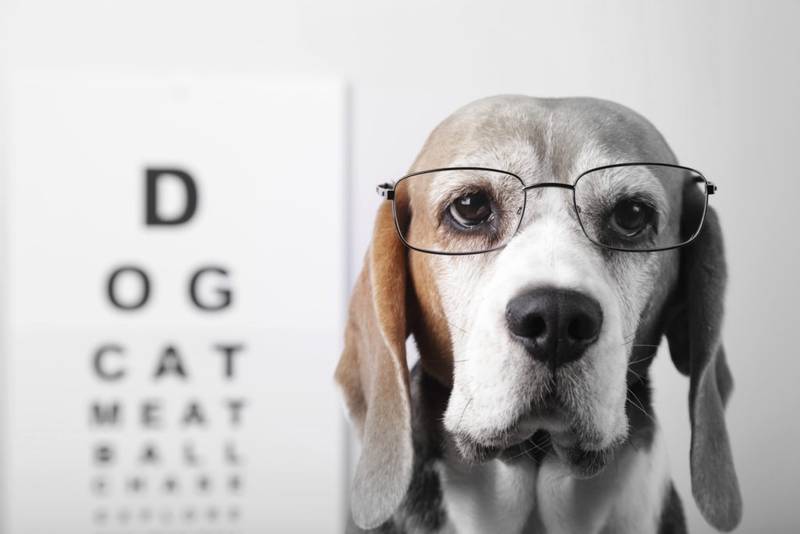Top Tips for Healthy Eyes

As we come to the end of National Eye Health week, we thought we would like to share some top tips for healthy eyes, to help you look after your eyes. You only get one pair!
Regular eye examinations.
As well as an eye health check, an eye examination might help detect signs of underlying general health conditions, such as diabetes, high cholesterol and high blood pressure. Everyone should have a sight test every two years, or more often if your optometrist recommends it. New technology means that our optometrists can undertake a CT scan of your eyes. OCT will look not only at the back of your eyes, but also what is happening beneath the surface of the retina. These images are recorded and your optometrist is able then to compare your present and past results, ensuring that the smallest changes can be detected.
Children should also be encouraged to go for regular eye examinations to ensure that any possible problems are picked up at the earliest possible opportunity.
Eat healthily.
Eating a healthy, balanced diet reduces your risk of eye disease. Include lots of omega-3 fats, found in oily fish, and lutein, found in dark-green, leafy vegetables such as spinach and kale. Vitamins A, C and E are also helpful, so eat at least five portions of fruit and vegetables a day. If you have a family history of macular degeneration (losing central vision in the eyes), ask your optometrist about taking nutritional supplements. We have information sheets within the practice giving more specific advice on this. Another very common condition, cataracts can also result from a poor diet
Stop smoking.
Many people are unaware of the link between smoking and eye disease. If you smoke, stop. Smoking significantly increases the risk of developing eye diseases, such as cataracts and age-related macular degeneration. It is shown conclusively to reduce the amount of protective pigment cells present in the back of your eyes. However long you have smoked it’s never too late to benefit from quitting.
Wear prescribed glasses.
Many eye and vision problems develop or increase as we get older. Contrary to the myth, wearing glasses and contact lenses doesn’t make your eyesight worse – they help your eyes work more efficiently. Every day we see improvements that we have made to the quality of a patient’s life by helping prescribe for specific visual problems, whether it be work or hobby related. We use the highest quality of lenses at Robinson’s to get the very best out of your eyes.
We are very aware that wearing glasses can be a big change in self perception for some people. your glasses are a part of you! which is why we will make sure that you go away feeling delighted and confident with your new image. And then of course there is always the possibility of contact lenses. We fit all types to all ages, of all prescriptions!
Take regular breaks.
When you work on something close up, such as a computer, tablet or smartphone, your eye muscles are active. This may cause tiredness and headaches, even in those with normal sight. Follow the 20/20/20 rule – every 20 minutes, look at something 20 feet away, for 20 seconds. And don’t forget to blink, as this helps prevent your eyes drying out.
Wear sunglasses.
As well as making your vision more comfortable in the sun, sunglasses protect your eyes from UV light. When choosing sunglasses, you should always make sure that they carry the CE or British Standard marks. There are different categories of sunglasses to choose from, including everyday wear, as well as frames for specialist sports such as skiing and cycling. Exposure to UV when young does most harm, so protect children with sunglasses, as well as a hat and sunblock.
Avoid dry eyes.
Eyes become dry, tired and sore if you are not producing enough tears or you have poor-quality tears. Central heating, air-conditioning and computer use can make it worse. Many adults suffer with dry eyes due to a health condition or medication. Lubricating eye drops can soothe irritation and reduce discomfort. You may find taking omega-3 supplements helps over time. Drink plenty of water and remember to blink often. If your eyes are persistently dry, tell your optometrist, who will carry out a full investigation.
Common eyelid conditions such as blepharitis are a cause of sore, dry eyes. Correct diagnosis by your optometrist can help to alleviate these conditions with an eyelid hygiene regime.
When needed your optometrist will be happy to recommend the most suitable type of eye lubricant to use when required. It is better to have a professional opinion, rather than buy over the counter, as different products will suit different individuals.
Research your family history.
Many eye conditions run in families, from simple long and short sight to more serious diseases, such as glaucoma, which is very often hereditary. Knowledge of problems with sight can help detect a condition before it becomes serious.
Remember your optometrist is the first person you should visit if you have any eye concerns. They can assess the problem and, if necessary, refer you to the right place for treatment. Should you have any questions on any of the points raised, please don’t hesitate to contact us.
